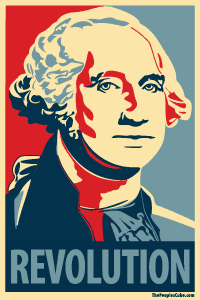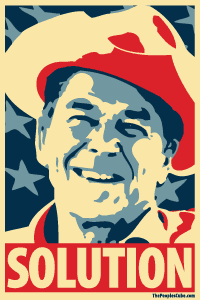By Russ Vaughn | June 21, 2012 | American Thinker
When BATF agents first blew the whistle on what is now known as Operation Fast and Furious, the rationale offered by DoJ for such an evidently foolish operation was that it was designed to allow BATF to track and prosecute the leaders of the Mexican drug cartels. As more information surfaced from the Mexican government and the BATF’s Mexican bureau chief specifying that none of them knew anything of this operation, many of us who were paying a bit closer attention to the case immediately smelled the first foul scent of corruption.
The fatal flaw in DoJ’s explanation was this: if the Mexican authorities had not been brought into the operation, nor even the BATF’s own agents authorized to operate in Mexico, then the proffered DoJ justification made utterly no sense, for the simple reason that once those walked guns hit the south side of that border, there was absolutely no process in place to track them to their supposed targets. Therefore, DoJ was patently misrepresenting its motive. Why?







 Even so, the United States is still the world’s only superpower, and so it will remain for the foreseeable future. Its economy is more than twice the size of
Even so, the United States is still the world’s only superpower, and so it will remain for the foreseeable future. Its economy is more than twice the size of 

 Let’s cut to the quick. I am sick and tired of hearing people get excited over the Republican presidential debates that seem to take place every other day. For the most part, they are a pathetic joke because they only perpetuate the usurpation of power. The general election debates in 2012 will be more of the same.
Let’s cut to the quick. I am sick and tired of hearing people get excited over the Republican presidential debates that seem to take place every other day. For the most part, they are a pathetic joke because they only perpetuate the usurpation of power. The general election debates in 2012 will be more of the same.
 A Virginia proposal that declares state workers and resources will be unavailable should Barack Obama decide to exercise provisions in the newest National Defense Authorization Act regarding the detention of U.S. citizens has begun moving forward again.
A Virginia proposal that declares state workers and resources will be unavailable should Barack Obama decide to exercise provisions in the newest National Defense Authorization Act regarding the detention of U.S. citizens has begun moving forward again.

 There’s nothing judicial going on here. There’s nothing legal. This isn’t even really about the Constitution. This is about politics, pure and simple, and Barack Obama’s reelection. It’s all it is. But he says things in these sound bites which you’ll hear coming up and they’re chilling to me. “The court has to understand…” “The court must understand,” is one of his sound bites. No, the court must not — does not have to — listen to you. What is this, “The court must understand”? That is a threat! How many of you think it possible that Obama will make a trip to the Supreme Court before the vote, before the final vote? Can you see it happening? I can.
There’s nothing judicial going on here. There’s nothing legal. This isn’t even really about the Constitution. This is about politics, pure and simple, and Barack Obama’s reelection. It’s all it is. But he says things in these sound bites which you’ll hear coming up and they’re chilling to me. “The court has to understand…” “The court must understand,” is one of his sound bites. No, the court must not — does not have to — listen to you. What is this, “The court must understand”? That is a threat! How many of you think it possible that Obama will make a trip to the Supreme Court before the vote, before the final vote? Can you see it happening? I can.
 RUSH: And that’s the key, and I just saw Attorney General Holder on television, (paraphrasing) “Of course we’re gonna respond. Of course it will be an appropriate response. And of course we understand Marbury v. Madison. Of course we understand the court’s final say-so on whether laws are constitutional. But we must remember that the court has always practiced deference,” said Holder. The court’s always been deferential. So he’s trying to have it both ways. “Oh, yeah, we understand the court strikes down laws of Congress. They better not strike this one down.” But, again, at the risk of being redundant, Obama knows that there’s
RUSH: And that’s the key, and I just saw Attorney General Holder on television, (paraphrasing) “Of course we’re gonna respond. Of course it will be an appropriate response. And of course we understand Marbury v. Madison. Of course we understand the court’s final say-so on whether laws are constitutional. But we must remember that the court has always practiced deference,” said Holder. The court’s always been deferential. So he’s trying to have it both ways. “Oh, yeah, we understand the court strikes down laws of Congress. They better not strike this one down.” But, again, at the risk of being redundant, Obama knows that there’s 








New York Legislation Would Ban Anonymous Online Speech
By David Kravets | May 22, 2012 | Wired Magazine
Did you hear the one about the New York state lawmakers who forgot about the First Amendment in the name of combating cyber-bullying and “baseless political attacks”?
Proposed legislation in both chambers would require New York-based websites, such as blogs and newspapers, to “remove any comments posted on his or her website by an anonymous poster unless such anonymous poster agrees to attach his or her name to the post.”
[Read more…]
Share this: